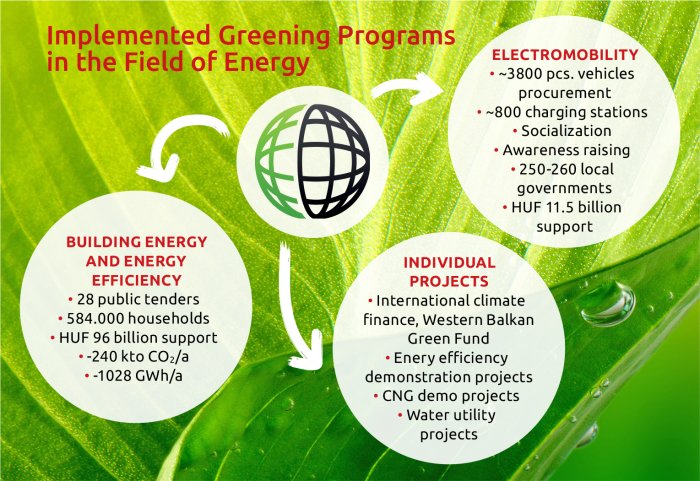Carbon Control: Not Enough Progress

While no one can doubt its devastating health and economic impacts, the coronavirus pandemic has also had some beneficial effects. Or it has at least revealed chances that we could take advantage of. The temporary shutdown of many production facilities significantly reduced noxious emissions. According to many analysts, this might be our last chance to reverse the effects of environmental destruction.
The online “Race to Zero Carbon” conference organized by the Business Council for Sustainable Development in Hungary (BCSDH), the British Embassy, the Embassy of the Kingdom of the Netherlands and the German Embassy aimed at encouraging the domestic business sector to shift to a more sustainable, carbon-neutral economy after the pandemic.
“Since 1990, the British economy has grown by 75% but we have managed to cut emissions by 45%. That shows that green growth is absolutely possible; we have got new green industries. The coronavirus crises has given us an opportunity to rebuild not what we had before, but to rebuild better, as we look ahead,” said the U.K. Ambassador to Hungary, Iain Lindsay.
“We need to unite behind a global green recovery, we have all got our parts to play whichever country we come from,” he continued.
“The race to zero as a campaign mobilizes actors and organizations outside of national governments to join the climate ambition alliance and send a strong message to governments that businesses, cities, regions, investors are united in meeting the Paris goals, creating a more resilient zero carbon economy,” he explained.
“Since climate change is not a local issue, Great Britain also develops projects outside the United Kingdom. We have launched a smart cities project here in Hungary and in the countries of Central and Eastern Europe, working with British embassies and partner organizations from the Baltic to the Black Sea, 50 cities from across the region working with British cities,” Lindsay said.
Mobilizing a Coalition
René van Hell, Ambassador of the Netherlands to Hungary, took a step further in describing the current context: there is not enough progress, and the Netherlands is even more at risk than other countries.
“Even though some cynics might argue that rising sea levels are business opportunities, for example selling our know how, as a result of centuries of experience of how to manage water, we have a feeling that this is not a way to go forward,” he said.
“Whether in London, Miami, Mumbai, Bangladesh, we are in the same boat and we can achieve our climate goals set in the Paris agreement only if we mobilize a coalition of net zero initiatives,” van Hell added.
The Netherlandsʼ view is that a green deal must be reached in the EU. The Dutch government has an action agenda, the national energy climate plan, which, he explained, would require agreements with sectors to achieve these climate goals.
“Sectors like the electricity, industry, transport and agriculture. We have made some assessments of the costs and I hope we have made the right calculations and living up to our commitments will be less than half a percent of our GDP in 2030.
“On a practical level, my embassy in Budapest tries to be active on many levels and sustainability of course is the leading theme. One of the ways that the ministry of foreign affairs challenges us ambassadors is that we have to compete to achieve sustainability,” van Hell noted.
In Hungary, the Parliament recently passed a climate protection law, by which Hungary has committed to achieving net climate neutrality by 2050, more specifically to balance the emissions and absorption of greenhouse gases, Barbara Botos, Deputy Minister of State for Climate Policy said.
The goals include the issuance of a Green Bond, and support for the energy-related development of domestic companies, thereby supporting the goal that the share of renewable energy sources in Hungary should reach 21% by 2030.
Green Deal, Green Bond
How can a Green Bond contribute to protecting the environment? The goal of issuing such a bond is to ensure adequate financing for the developing Hungarian green economy and promoting environmental sustainability, Botos explained.
The money collected through these bonds will be dedicated to six Eligible Green Expenditure categories:
1 Renewable Energy;
2 Energy Efficiency;
3 Land Use and Living Natural Resources;
4 Waste and Water Management;
5 Clean Transportation; and
6 Adaptation.
Hungary has already issued Green Bonds worth EUR 1.5 billion, a significant success on the market, Botos noted.
Diána Ürge-Vorsatz, vice-chair of the Working Group of the United Nations Intergovernmental Panel on Climate Change (IPCC), warned that the coronavirus may be our last warning.
“If we do not change our relationship with nature radically, the survival of civilization is highly questionable. The health and economic crisis caused by the coronavirus is just a foretaste of what climate change will cause soon,” she said.
However, “The crisis and economic recovery have created many new opportunities to accelerate the economic and institutional changes needed for decarbonization, but these were very difficult to mobilize before the crisis. It’s up to us whether we return to the outdated 20th-century ‘normal’, or build a new, more livable, healthier, cooler and happier ‘new normal’,” she added.
This “new normal” should be a shift to a low carbon economy, digitalization and service orientation. A stimulus spending of only 2.5% of the annual GDP by all countries would be enough to solve carbon emission problems, Ürge-Vorsatz said.

SUPPORT THE BUDAPEST BUSINESS JOURNAL
Producing journalism that is worthy of the name is a costly business. For 27 years, the publishers, editors and reporters of the Budapest Business Journal have striven to bring you business news that works, information that you can trust, that is factual, accurate and presented without fear or favor.
Newspaper organizations across the globe have struggled to find a business model that allows them to continue to excel, without compromising their ability to perform. Most recently, some have experimented with the idea of involving their most important stakeholders, their readers.
We would like to offer that same opportunity to our readers. We would like to invite you to help us deliver the quality business journalism you require. Hit our Support the BBJ button and you can choose the how much and how often you send us your contributions.








